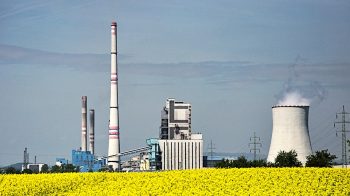The increasing scrutiny on chemical pesticides driven by crop losses, increased pest resistance, and the harmful effects of pesticides on the environment have led to the continued growth of the biopesticides market. Agricultural biologicals have been gaining pace in the crop protection industry, where major companies have been shifting their focus to manufacture biological products. The biopesticides market has been evolving for decades, and with the growing demand for high yield and efficient crop protection inputs, technological advancements have been booming in the market. The biopesticides market is estimated to be valued at USD 3.0 billion in 2018 and is projected to reach USD 6.4 billion by 2023, at a CAGR of 15.99% during the forecast period.
Biopesticides are types of pesticides derived from natural substances, such as plants extracts, microbials, and beneficial insects. Biopesticides can be applied in a number of ways, of which foliar spray is the most widely accepted application mode across the globe. However, in recent times, precision targeting and application advantages associated with seed treatment have been gaining importance among biologicals across the globe. Controlled-release is another technology being explored for pesticides (both biologicals and chemicals) by research institutions and key players as part of improving integrated pest management practices.
Download PDF Brochure:
https://www.marketsandmarkets.com/pdfdownloadNew.asp?id=267
The market growth rate for bionematicides is projected to be the fastest than that of the other biopesticides. The common types of biopesticide solutions used in fields include bioinsecticides, biofungicides, bionematicides, and others. Bionematicides are biological crop protection solutions against nematode infestation in plants. On the basis of type, bionematicides have been broadly classified into microbials and plant extracts. They utilize microbial sources to control plant-parasitic infestation.
The European market for biopesticides has strong potential to become a leading market in the coming years. The increasing demand for organic food products and rising consumer health awareness is among the major factors driving the growth in the region. Europe had the second-largest organic agricultural land and accounted for over 23% of the world’s organic agricultural land as of 2016. Biopesticides in the European Union are considered an important crop protection tool required to support modern agriculture, mainly in integrated crop/pest management (ICM or IPM) systems. Technical advancements in the region have also driven the growth of the biopesticides market. Industry participants are tapping into the increased demand for organic farming and the easing regulatory environment to develop and release new formulations that will be adaptable to a wider variety of crop types and regions.
The key players in the market include Bayer CropScience (Germany), Syngenta (Switzerland), BASF (Germany), Marrone Bio Innovations (US), Isagro (Italy), Valent BioSciences Corporation (US), Certis (US), Koppert (Netherlands), Bioworks (US), Stockton Group (Israel), FMC Corporation (US), and UPL (India). These players are undertaking new product development, product launches, and investments to improve their market positions and extend their competitive advantage.
To speak to our analyst for a discussion on the above findings, click Speak to Analyst
